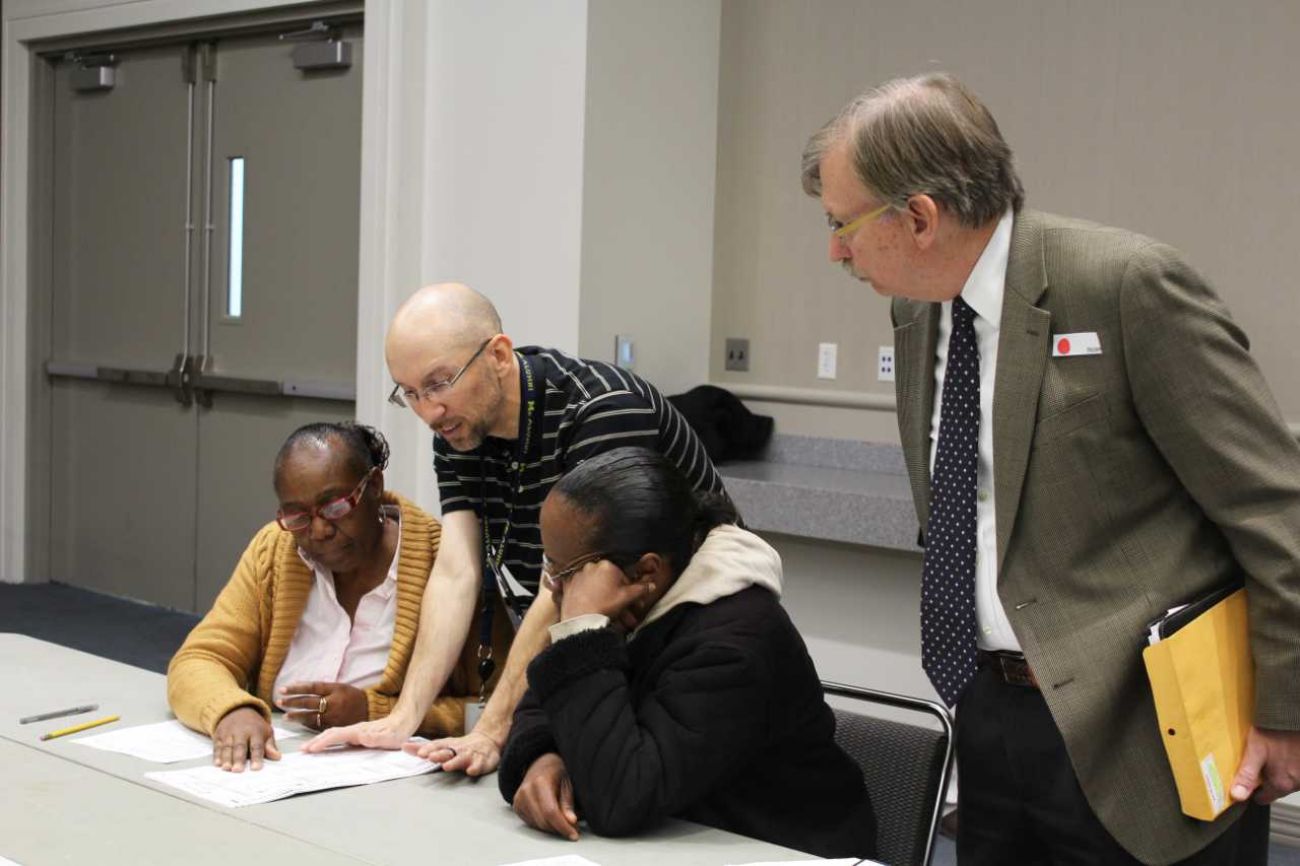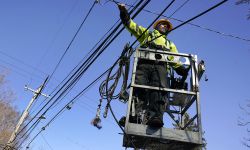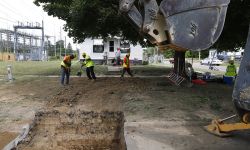Detroit’s August election woes have many worried about November

Wayne County and state elections officials are raising concerns about Detroit’s messy August primary, which left nearly half of the city’s precincts ineligible for a recount. After years of similar problems, they’re asking Secretary of State Jocelyn Benson to intervene to make sure errors aren’t repeated in November.
The city’s already problem-plagued election system faced additional burdens in the midst of a global pandemic. The result: hundreds of precincts where the total number of primary votes cast was at least one ballot off from the number recorded, without explanation for the mismatch, making the entire precinct’s votes ineligible for a recount, if one were needed.
The problem was especially acute among the city’s absentee voting precincts, 72 percent of which couldn’t be recounted if necessary. With absentee ballots expected to double in the general election, some Detroiters and election officials at the state level are nervously reviewing issues with the city’s primary election with an eye toward November, when Michigan once again may be a pivotal state in the hotly-contested presidential election.
- Michigan GOP plans huge door-knocking effort to re-elect Trump amid pandemic
- Michigan judge upholds Jocelyn Benson’s absentee ballot application mailings
- As Election Day approaches, Trump and Michigan GOP now push absentee voting
In 2016, President Trump won Michigan by a mere 10,704 votes out of a total of 4.5 million. While Michigan is expected to be a harder get for the president in 2020, it’s still likely to be close.
The implications — that if a recount was demanded in the case of a close race, many Detroiters’ votes may not be recounted — are not lost on Michigan officials.
The Wayne County Board of Canvassers this month asked Michigan Secretary of State Jocelyn Benson’s office to investigate the city’s election worker training and other processes. Last week, the Board of State Canvassers certified the state’s primary election results “with the requirement that the secretary of state exercise supervisory control” over Detroit’s elections if problems aren’t fixed before November.
While Benson’s office has said it will “support and assist” Detroit City Clerk Janice Winfrey in November, state Elections Director Jonathan Brater made it clear the department won’t take over.
"Logistically, practically, it's not possible for the Bureau of Elections to run Detroit's elections,” he told the board. It’s also unclear whether the state canvassing board has the power to compel the Secretary of State’s office to do so.
But many still argue something drastic needs to be done to protect the integrity of votes cast by city residents in the fall. There’s a lot to lose: Detroit is the largest city in the state, the most reliably Democratic voting bloc, and the city with the highest percentage of African Americans in the nation. (According to 2019 Census estimates, the city is 79 percent African American, 10 percent white and 8 percent Latino.)
“If this investigation does not produce changes, if we can’t rectify the situation before November, it’s going to be atrocious,” Monica Palmer, a Republican and chair of the Wayne County Board of Canvassers, told Bridge Michigan.
“If we look at what happened in ‘16, with there only being a 10,000 spread between the two [presidential candidates], it could very well come down to a recount again in November.”
Potential trouble ahead
When Rachel Frierson learned the City of Detroit needed at least 900 more election workers for the August primary, she decided to step up and volunteer to work the polls for the first time.
Frierson, a Detroiter and director of programming at the Detroit Riverfront Conservancy, ran into problems from beginning to end that left her concerned about the city’s elections.
It took two applications and a 30-minute phone call just to get signed up for a training session, Frierson said. She wrote on Facebook that training was “a mess,” and held in person when it could have been held online. The day before the Aug. 4 election, no one had told her where to work on Election Day. It took another nearly two hours on hold at the clerk’s office before someone told her.
On Election Day, two-thirds of the people she was supposed to work with didn’t show up — which she said was no surprise given her difficulty learning where to go. Even dropping off the ballots at night’s end was difficult: She said Winfrey’s office didn’t tell her she needed to bring another person with her to drop off ballots. Luckily, she bumped into another leader from her polling location on the street, and they delivered the ballots together.
“Something has to change and make sure that she’s accountable,” Frierson said of Winfrey. “I don’t think we’re doing fine. Especially after 2016, we can’t have that happen. I’m concerned that the person who’s president right now, he’s the first person to want to challenge” the results.
“To say we can lose because Detroit’s not counted right and it’s our largest population center — that’s a huge problem for Democrats,” she said.
Others say they remain concerned that August’s issues portend additional challenges. Detroit is the most reliable Democratic stronghold in the state and the Democratic Party — stung by the close defeat in 2016 — is determined not to let high levels of enthusiasm among supporters wane ahead of November.
Benson and Winfrey need to listen to the stories of election workers and improve the system for the fall, Frierson suggested.
“We’re talking about leadership from the top, which is an issue,” Frierson said. “We need to figure out a better way to get [poll workers] more supported.”
The August primary was not the first time Detroit’s election system has had errors that threaten some precincts’ ability to be recounted.
In 2016, when Green Party presidential candidate Jill Stein demanded a recount in Michigan, nearly 60 percent of Detroit precincts couldn’t be recounted. A year later, when current Lt. Gov. Garlin Gilchrist called for a recount against Winfrey, 20 percent of the precincts couldn’t be recounted because of poll worker errors.
In fact, complaints have abounded about Detroit’s elections for at least 20 years. Broken voting machines, power outages, missing poll books and more have fueled distrust in a fundamental component of democracy.
- Michigan coronavirus unemployment, map, curve, COVID-19 updates
- Dashboard: Michigan coronavirus testing numbers, trends, COVID-19 data
“It’s really disappointing because some of these issues aren’t new with this office,” said state Sen. Stephanie Chang, a Democrat representing parts of Detroit who wrote on Twitter the day after the primary election she’s “very ready for a new Detroit city clerk.”
She said she heard of multiple other issues with the clerk’s office ahead of the primary, including absentee ballots being mailed out the day before the election and shoddy poll worker training.
“It just feels like with how important this year’s election is, we should really have things all together,” Chang said. “So it’s concerning.”
Many said those issues were exacerbated by the unprecedented challenges of the pandemic: Many veteran poll workers, most of whom are elderly and perhaps more vulnerable to the coronavirus, decided not to volunteer. Several others did not show up on Election Day, and the city dealt with a much higher volume of absentee ballots compared with years past. Indeed, a record 1.6 million people statewide voted absentee in the August primary (beating out the previous record of 1.27 million in the 2016 general election), including nearly 80,000 cast in Detroit. A state ballot initiative passed in 2018 that allows no-reason absentee voting in Michigan contributing to the uptick.
“I don’t think enough consideration is being given to that fact,” said Jonathan Kinloch, Democratic vice chair of the Wayne County Board of Canvassers. “But I hope that the clerk’s office is understanding, and I do believe that they do [know] the severity of what’s at play here.”
Kinloch noted “the election was close in 2016 and it will potentially be close in 2020 and we know that if that is the case, we most likely will have a recount here. What we don’t want is, because of our archaic recount law, to have precincts un-recountable.”
What happened — and what can be done?
Detroit’s absentee ballots are tabulated by precinct just like in-person ballots through an absentee voting counting board, a group of election workers who count absentee ballots in a location separate from the polls. The clerk’s office is required to record how many absentee ballots were mailed back and record receiving it in the individual’s voting record and in a precinct poll book. Poll books keep track of how many vote in each precinct.
But in Detroit, the clerk’s office didn’t consistently record the number of absentee ballots that came in, said Brater, the state elections director. So when AV counting boards began counting ballots on Election Day, some were likely to be out of balance with the poll book for the precinct.
In some cases, absentee ballots were attributed to the wrong precinct, or election inspectors were putting ballots into the wrong containers after they were scanned, Brater added.
“It seemed like a lot of care wasn’t given in the training, or the election inspector did not understand the gravity of the work they were involved in,” Kinloch said. “It showed a lot of problems that were definitely, definitely human errors and totally, totally avoidable.”
Winfrey, the Detroit city clerk, told the Wayne County Board of Canvassers this month that the primary election problems were due to workers becoming fatigued after working 20 hours straight. She called for state lawmakers to allow election workers to begin processing absentee ballots before Election Day, a request that has stalled in the Republican-led Legislature. Winfrey declined to be interviewed by Bridge for this article.
These problems don’t mean that some votes weren’t being counted, said both Kinloch and Chris Thomas, the former state elections director who worked under both Republican and Democrat secretaries of state. Ballots must be verified before they are sent to the AV board to be counted.
“It’s not a big fraud issue,” Thomas said. “It’s more like an accounting balancing situation. And it’s done at the end of a very long day and, in the absentee arena now, obviously with a huge volume.”
But the high numbers of out-of-balance precincts means those can’t be included in a recount. Michigan’s recount law is one of the strictest in the nation and has caused issues for Detroit’s problem-plagued election system multiple times. One elections expert told Bridge in 2018 the state’s recall law is “poison” because it limits a candidate’s ability to secure a recount.
However, that law is unlikely to change ahead of the November election. That’s why county and state canvassers are asking Benson’s office to take action.
Brater said it’s not logistically possible for the state to run Detroit’s elections, but the department will “do whatever is necessary to enforce the election law” and will provide more help with poll worker recruitment and training ahead of the November election. The department will also plan to have at least one staff member present at the absent voter counting board this fall.
SOS spokesperson Jake Rollow told Bridge via email that Benson already has “supervisory control” over local election officials — which the Board of State Canvassers asked her to exercise.
“We will take necessary steps to ensure the election law is followed uniformly, while being mindful and respectful of clerks’ authority to run their local elections,” Rollow said. “We are currently reviewing data and information from the primary in order to make a plan to assist the Detroit Clerk’s office in preventing such errors in November.”
Rollow also repeated Winfrey’s plea, which is supported by Benson and other local clerks: changing state election law to allow clerks to begin processing ballots before Election Day.
Currently, election officials have to wait until polls open on Election Day to begin processing and counting absentee ballots, which takes more time than in-person votes. In the August primary, 64 percent of total votes cast were remote.
“We know already that many of the issues [in Detroit’s August election] relate to human error, and human error increases when people are tired, stressed or overworked,” Rollow said.
“Because the state Legislature has failed to allow clerks and election workers to begin processing absentee ballots before Election Day, many election workers in Detroit were asked to work more than 20 hours straight. It is not surprising that election workers made record-keeping mistakes under those circumstances.”
See what new members are saying about why they donated to Bridge Michigan:
- “In order for this information to be accurate and unbiased it must be underwritten by its readers, not by special interests.” - Larry S.
- “Not many other media sources report on the topics Bridge does.” - Susan B.
- “Your journalism is outstanding and rare these days.” - Mark S.
If you want to ensure the future of nonpartisan, nonprofit Michigan journalism, please become a member today. You, too, will be asked why you donated and maybe we'll feature your quote next time!




